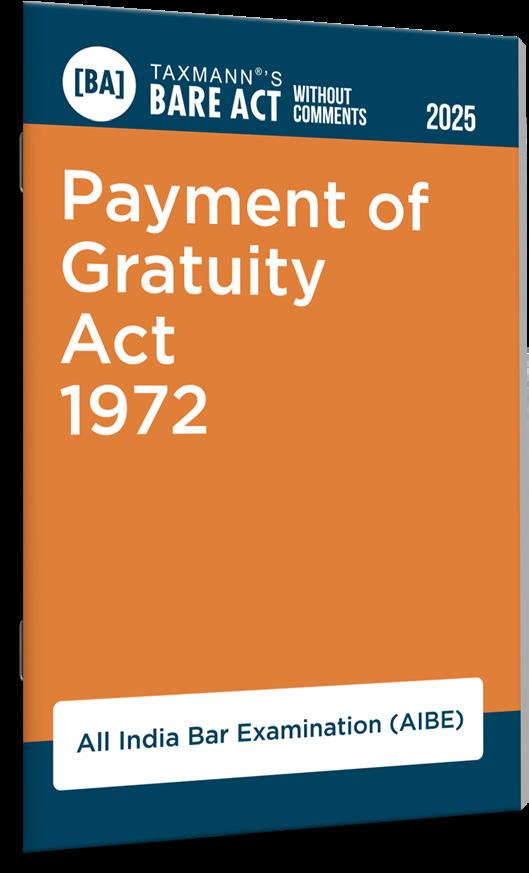

Short title, extent and commencement.
1. (1) This Act may be called the Trade Marks Act, 1999.
(2) It extends to the whole of India.



Short title, extent and commencement.
1. (1) This Act may be called the Trade Marks Act, 1999.
(2) It extends to the whole of India.
(3) It shall come into force on such date2 as the Central Government may, notification in the Official Gazette, appoint:
Provided that different dates may be appointed for different provisions Act, and any reference in any such provision to the commencement of this shall be construed as a reference to the coming into force of that provision.
Definitions and interpretation.
2. (1) In this Act, unless the context otherwise requires,—
(a) 3[***]
(b) “assignment” means an assignment in writing by act of the parties cerned;
(
c) “associated trade marks” means trade marks deemed to be, or required be, registered as associated trade marks under this Act;

- In exercise of the powers conferred
sub-section (3) of section 1 of the Trade Marks Act, 1999 (47 of 1999), the Central Govern ment hereby appoints 15th day of September, 2003 as the date on which all the provisions
Omitted by the Tribunals Reforms Act, 2021, w.r.e.f. 4-4-2021. Prior to its omission,
“Appellate Board” means the Appellate Board established under section 83;’ ) read as under: “Bench” means a Bench of the Appellate Board;’

© Taxmann Price : ` 45
Published by :
Taxmann Publications (P.) Ltd.
Sales & Marketing : 59/32, New Rohtak Road, New Delhi-110 005 India
Phone : +91-11-45562222
Website : www.taxmann.com
E-mail : sales@taxmann.com
Regd. Office : 21/35, West Punjabi Bagh, New Delhi-110 026 India
Printed at :
Tan Prints (India) Pvt. Ltd.
44 Km. Mile Stone, National Highway, Rohtak Road Village Rohad, Distt. Jhajjar (Haryana) India
E-mail : sales@tanprints.com
Disclaimer
Every effort has been made to avoid errors or omissions in this publication. In spite of this, errors may creep in. Any mistake, error or discrepancy noted may be brought to our notice which shall be taken care of in the next edition. It is notified that neither the publisher nor the author or seller will be responsible for any damage or loss of action to any one, of any kind, in any manner, therefrom. It is suggested that to avoid any doubt the reader should cross-check all the facts, law and contents of the publication with original Government publication or notifications.
No part of this book may be reproduced or copied in any form or by any means [graphic, electronic or mechanical, including photocopying, recording, taping, or information retrieval systems] or reproduced on any disc, tape, perforated media or other information storage device, etc., without the written permission of the publishers. Breach of this condition is liable for legal action.
For binding mistake, misprints or for missing pages, etc., the publisher’s liability is limited to replacement within seven days of purchase by similar edition. All expenses in this connection are to be borne by the purchaser. All disputes are subject to Delhi jurisdiction only.


[39 OF 1972]*
An Act to provide for a scheme for the payment of gratuity to employees engaged in factories, mines, oilfields, plantations, ports, railway companies, shops or other establishments and for matters connected therewith or incidental thereto.
BE it enacted by Parliament in the Twenty-third Year of the Republic of India as follows:—
Short title, extent, application and commencement.
1. (1) This Act may be called the Payment of Gratuity Act, 1972.
(2) It extends to the whole of India :
Provided that insofar as it relates to plantations or ports, it shall not extend to the State of Jammu and Kashmir.
(3) It shall apply to—
(
(
a) every factory, mine, oilfield, plantation, port and railway company ;
b) every shop or establishment within the meaning of any law for the time being in force in relation to shops and establishments in a State, in which ten or more persons are employed, or were employed, on any day of the preceding twelve months;
(
c) such other establishments or class of establishments, in which ten or more employees are employed, or were employed, on any day of the preceding twelve months, as the Central Government may, by notification, specify in this behalf.
1[(3A) A shop or establishment to which this Act has become applicable shall continue to be governed by this Act notwithstanding that the number of persons employed therein at any time after it has become so applicable falls below ten.]
(4) It shall come into force on such date† as the Central Government may, by notification, appoint.
*Dated 21-8-1972.
1. Inserted by the Payment of Gratuity (Second Amendment) Act, 1984, w.e.f. 18-5-1984.
† Enforced with effect from 16-9-1972, vide Notification No. S.O. 601(E), dated 16-9-1972.
Definitions.
2. In this Act, unless the context otherwise requires,—
(a) “appropriate Government” means,—
(i) in relation to an establishment—
(a) belonging to, or under the control of, the Central Government, (b) having branches in more than one State, (c) of a factory belonging to, or under the control of, the Central Government, (d) of a major port, mine, oilfield or railway company, the Central Government,
(ii) in any other case, the State Government ;
(b) “completed year of service” means continuous service for one year;
2[(c) “continuous service” means continuous service as defined in section 2A;]
(d) “controlling authority” means an authority appointed by the appropriate Government under section 3;
3[(e) “employee” means any person (other than an apprentice) who is employed for wages, whether the terms of such employment are express or implied, in any kind of work, manual or otherwise, in or in connection with the work of a factory, mine, oilfield, plantation, port, railway company, shop or other establishment to which this Act applies, but does not include any
2. Substituted for clause (c) and the Explanations thereto by the Payment of Gratuity (Second Amendment) Act, 1984, w.e.f. 18-5-1984. Prior to substitution, clause (c) and Explanations thereto read as under:
‘(c) “continuous service” means uninterrupted service and includes service which is interrupted by sickness, accident, leave, lay-off strike or a lock-out or cessation of work not due to any fault of the employee concerned, whether such uninterrupted or interrupted service was rendered before or after the commencement of this Act.
Explanation I.— In the case of an employee who is not in uninterrupted service for one year, he shall be deemed to be in continuous service if he has been actually employed by an employer during the twelve months immediately preceding the year for not less than— (i) 190 days, if employed below the ground in a mine or (ii) 240 days, in any other case, except when he is employed in a seasonal establishment. Explanation II.— An employee of a seasonal establishment shall be deemed to be continuous service if he has actually worked for not less than seventy-five per cent of the number of days on which the establishment was in operation during the year:’
3. Substituted by the Payment of Gratuity (Amendment) Act, 2009, w.r.e.f. 3-4-1997. Prior to substitution, clause (e), as amended by the Payment of Gratuity (Amendment) Act, 1984, w.e.f. 1-7-1984, Payment of Gratuity (Amendment) Act, 1987, w.e.f. 1-10-1987 and Payment of Gratuity (Amendment) Act, 1994, w.e.f. 24-5-1994, read as under: ‘(e) “employee” means any person (other than an apprentice) employed on wages, in any establishment, factory, mine, oilfield, plantation, port, railway company or shop, to do any skilled, semi-skilled, or unskilled, manual, supervisory, technical or clerical work, whether the terms of such employment are express or implied, and whether or not such person is employed in a managerial or administrative capacity, but does not include any such person who holds a post under the Central Government or a State Government and is governed by any other Act or by any rules providing for payment of gratuity.’
such person who holds a post under the Central Government or a State Government and is governed by any other Act or by any rules providing for payment of gratuity;]
4[***]
(f) “employer” means, in relation to any establishment, factory, mine, oilfield, plantation, port, railway company or shop—
(i) belonging to, or under the control of, the Central Government or a State Government, a person or authority appointed by the appropriate Government for the supervision and control of employees, or where no person or authority has been so appointed, the head of the Ministry or the Department concerned,
(ii) belonging to, or under the control of, any local authority, the person appointed by such authority for the supervision and control of employees or where no person has been so appointed, the chief executive officer of the local authority,
(iii) in any other case, the person, who, or the authority which, has the ultimate control over the affairs of the establishment, factory, mine, oilfield, plantation, port, railway company or shop, and where the said affairs are entrusted to any other person, whether called a manager, managing director or by any other name, such person ;
(g) “factory” has the meaning assigned to it in clause (m) of section 2 of the Factories Act, 1948 (63 of 1948);
(h) “family”, in relation to an employee, shall be deemed to consist of —
(i) in the case of a male employee, himself, his wife, his children, whether married or unmarried, his dependent parents 5[and the dependent parents of his wife and the widow] and children of his predeceased son, if any,
(ii) in the case of a female employee, herself, her husband, her children, whether married or unmarried, her dependent parents and the dependent parents of her husband and the widow and children of her predeceased son, if any.
6[***]
4. Explanation omitted by the Payment of Gratuity (Amendment) Act, 1994, w.e.f. 24-5-1994. Prior to omission, Explanation read as under:
“Explanation.— In the case of an employee, who having been employed for a period of not less than five years on wages not exceeding one thousand rupees per mensem, is employed at any time thereafter on wages exceeding one thousand rupees per mensem, gratuity in respect of the period during which such employee was employed on wages not exceeding one thousand per mensem, shall be determined on the basis of the wages received by him during that period;”
5. Substituted for “and the widow” by the Payment of Gratuity (Amendment) Act, 1987, we.f. 1-10-1987.
6. Proviso omitted, ibid. Prior to omission, said proviso read as under:
“Provided that if a female employee, by a notice in writing to the controlling authority, expresses her desire to exclude her husband from her family, the husband and his dependent parents shall no longer be deemed, for the purposes of this Act, to be included in the family of such female employee unless the said notice subsequently withdrawn by such female employee.” 3
AUTHOR : TAXMANN'S EDITORIAL BOARD
PUBLISHER : TAXMANN
DATE OF PUBLICATION : AUGUST 2025
EDITION : 2025 EDITION
ISBN NO : 9789371261289
NO. OF PAGES : 24
BINDING TYPE : PAPERBACK

Payment of Gratuity Act 1972 [Bare Act without Comments] by Taxmann for All India Bar Examination (AIBE) provides the authentic and updated statutory text of India's gratuity law. It lays down a uniform scheme for gratuity across factories, mines, plantations, ports, railways, shops, and establishments, forming a key part of labour welfare legislation. The 2025 Edition incorporates all amendments in force, offering a precise, exam-compliant reference. The Present Publication is the 2025 Edition, covering the amended and updated text of the Payment of Gratuity Act [Act No. 39 of 1972], with the following noteworthy features:
• [Authentic Bare Act] Exact statutory language as enacted by Parliament
• [Amendment Coverage] Updated with all changes up to 2025
• [Exam-compliant] Free from commentary, case law, or notes—permitted for AIBE
• [User-friendly Layout] Section-wise arrangement with clear headings
• [Schedules & Notifications] References to rules, exemptions, and notified limits